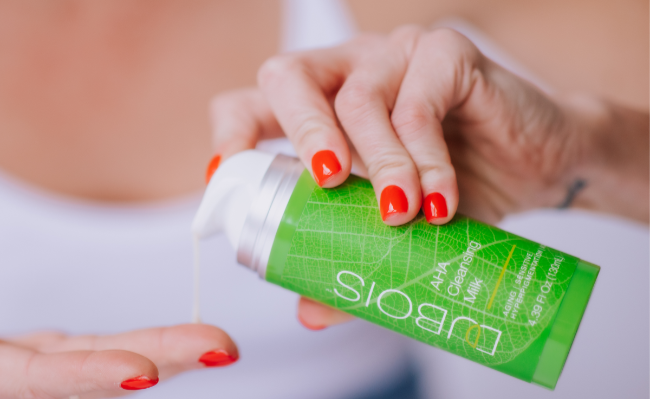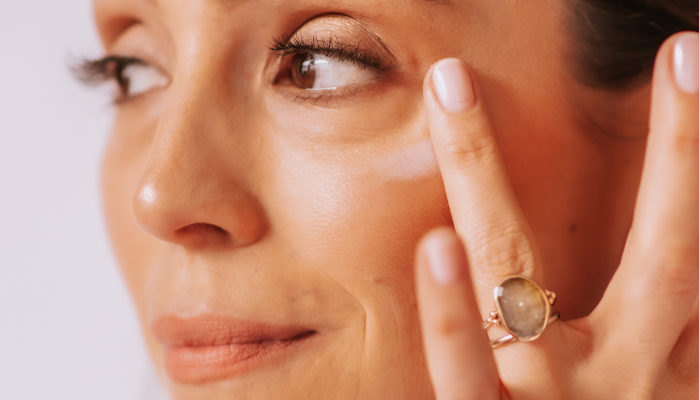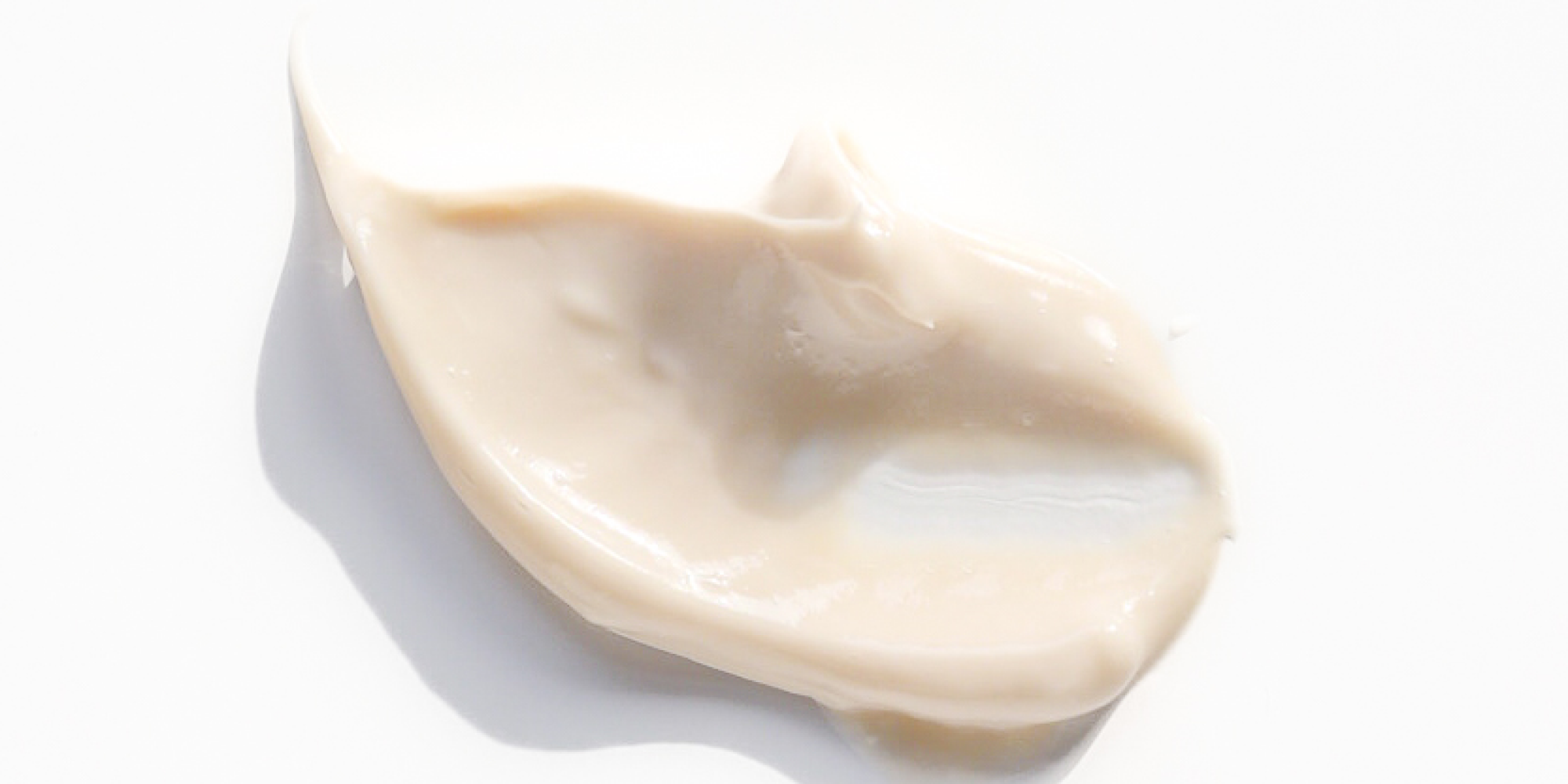
Inflammation and Your Skin: Everything You Need to Know
Inflammation is a term that has been buzzing around wellness circles for years, but it is so much more than just a buzzword; it could be the key to understanding where that brand-new breakout came from, or why you are feeling tired all the time. Not to mention its importance to medicine. In recent years, inflammation has been the topic of countless medical studies and research. Why? Inflammation has been shown to be at the root of many physical ailments and skin issues, in fact, understanding inflammation could hold the key to discovering more effective treatments for conditions like heart disease and cancer. It can also take a major toll on your skin, but to get why, it is important to know what it is and where it comes from.
What is Inflammation?
Inflammation may seem like a scary concept, but it’s actually a natural healing process meant to keep potential irritants out of the body. An inflammatory response occurs when your body is put in harm’s way; either by an unknown substance or an injury. As your body tries to fight off the unknown substance, it makes the area inflamed so that no other irritants can enter to cause more harm. Allergens, infectious bacteria, injury, and foods you may have an intolerance toward can all lead to inflammation.
To give you an example of how inflammation works, think about the physical reaction that happens when you stub your toe. Your toe may begin to feel warm and swell. Your body wants to heal the wound quickly, and so triggers an inflammatory response. The goal is to bring lots of white blood cells, cytokines (infection-fighters) and immune cells (neutrophils) to the toe to start the healing process. The toe may get red and feel warm because blood vessels become wider to increase blood flow to the area. And because so much liquid is flooding the toe, it also may swell.Any residual soreness you may feel is the result of hormone-like substances called prostaglandins entering the picture to clot the blood and help heal damaged tissues. This is the optimal inflammatory response when your body is physically injured, but you might be wondering, how does inflammation impact the skin or internal processes?
A stubbed toe is an example of acute inflammation, the good type that protects the body. Acute inflammation can also be internal; when you have food poisoning, your body is actively trying to remove the toxin, and it tends to subside after a few days.
The inflammation that we’re more concerned about is chronic inflammation. Chronic inflammation is the type that can wreak lasting havoc on the body. Instead of going away after a few days, it continues to a point when there is nothing left to stave off or heal, and so the body turns on itself and starts to attack internal organs, healthy cells, or tissue. Chronic inflammation, also referred to as low-grade, can be subtle enough that you do not even realize it is happening, but if it goes on too long, it can be a contributing factor to conditions or diseases that may develop later. And while this may sound pretty intense, there are telltale signs that you can pay attention to so you can reverse its damaging effects.
Causes of Inflammation

The medical world is only recently coming to understand just how comprehensive the effects of inflammation are. And in many cases, it is still being determined if inflammation is the result of various conditions or if it is a causative factor.
What we now know is that the causes of inflammation are different for everyone, but can be influenced by genetics, your environment, and your lifestyle. Environmental factors that contribute to chronic inflammation include pollution and exposure to UV light. And when it comes to your lifestyle and habits, inflammatory agents are the pretty usual suspects. The worst offenders are smoking, poor dietary habits like overindulging in foods that are high in sugar and saturated fat, drinking in excess, and stress.
Symptoms of Chronic Inflammation
When inflammation is not acute, the symptoms are a lot more subtle. Chronic inflammation is constant and reveals itself in physical conditions like low-grade pain, especially in the joints, digestive issues, fatigue or exhaustion. Or, you may notice changes in your complexion like breakouts, irritation, hyperpigmentation, dryness, rosacea, or sensitive skin.
Inflammation and Skin
Your skin is an especially important tool in learning whether or not you are experiencing inflammation. It’s the body’s largest organ and skin cells turnover fairly quickly, making it one of the first places to that will reveal if the body is under stress.
Inflammation in the skin can be acute or chronic. If you forget to wear sunscreen and get a sunburn, the area becomes red and inflamed, but this will go away in a short amount of time, making it acute inflammation. If you go out in the sun and never wear sunscreen, the damage will begin to have a long-term effect—resulting in premature aging of the skin, aka fine lines, wrinkles, age spots, and pigmentation. This is chronic inflammation.
The same concept applies to other external factors like pollution and the products you’re using. If your skincare is packed with irritating ingredients, harsh fragrance, or strong concentrations of essential oils, it can throw skin out of balance and start an inflammatory response. This long-term exposure to irritants damages the fibroblasts in your skin, which are responsible for producing collagen and elastin, proteins that keep your skin plump and flexible.
Inflammatory skin conditions aren’t just caused by external aggressors. Your skin reflects also what is going on inside your body, so when you’re experiencing internal inflammation, there’s a good chance it will appear as something minor like a breakout or lead to more serious skin conditions like eczema and psoriasis. Eating lots of sugary or fatty foods can cause breakouts while changing hormone levels may result in hormonal acne. Being under high amounts of stress can leave your skin looking blotchy or dull. If you aren’t drinking enough water, it can dry out your skin, making it more susceptible to inflammation.
Oxidative stress can also cause an inflammatory response in the skin, resulting in premature aging. Oxidative stress is the result of free radical damage. The body creates free radicals as a byproduct during normal metabolic processes. They are unstable molecules that are missing an electron from their outer cell. To become stable, free radicals must go on a search for the missing electron, but if they can’t find one, they will bounce around, causing cellular damage leading to inflammation and a breakdown of collagen and elastin.
Because inflammation can be the result of both internal and external factors, there are both topical changes and lifestyle changes you can make to minimize its effects.
Topical Remedies for Inflammation

You can make changes to your skincare products to help mitigate the surface-level effects of inflammation. It may seem obvious, but because one of the main causes of inflammation is irritating ingredients in the products you use, one of the first steps to preventing it is eliminating potentially sensitizing agents.
Some things are easier to avoid than others; steer clear of overly abrasive exfoliants like walnut shells or unnatural scrubs, eliminate anything with artificial fragrance, and be careful with essential oils, as they can irritate if not diluted. For a more general list of what to avoid, we recommend staying away from the dirty dozen, a list of toxic ingredients. Luckily, there are plenty of ingredients to add into your ritual that can address the effects of inflammation.
- Build up your barrier. Inflammation can do a lot of damage to your skin barrier, so look for moisturizers with strengthening ingredients like niacinamide, which has been shown to prevent moisture loss and stimulate collagen, or centella asiatica, a time-tested wound-healing herb. Or, try adding a facial oil with a nourishing seed oil base like rosehip or blue tansy.
- Soothe things over. Redness and irritation are never fun, but they tend to come with most inflammatory skin conditions. For some immediate relief with long-term benefits, look for products with calming and hydrating aloe vera. Skin-soothing herbs like chamomile and colloidal oatmeal can be especially comforting when it feels like your complexion is on fire. Or, try witch hazel, a powerful anti-inflammatory and antioxidant.
- SPF is a non-negotiable. Always wear a chemical-free sunblock with SPF 30+ to prevent UV damage. Bonus if your SPF has an antioxidant-rich ingredient like green tea extract which can boost its protective effects.
- Brighter days ahead. Address pigmentation with gentle, brightening ingredients like daisy flower or licorice. Turmeric, the anti-inflammatory herb that’s been used for thousands of years to ease muscle soreness can help brighten skin when applied topically.
- Hydration station. Keeping your skin hydrated is essential for warding off inflammation. Chronic inflammation can dehydrate your skin, so find products with hyaluronic acid—a naturally occurring moisturizer that’s so powerful, it can hold 100x its weight in water.
- Give your skin an antioxidant boost. Ingredients like vitamin C and retinol are known antioxidants and can help fend off premature aging of skin. Find these in our Defend Antioxidant Serum.
For more information on how to relieve sensitive skin, read this.
Lifestyle Changes to Prevent Inflammation

There are changes that you can make to your lifestyle and diet that can help you both look and feel your best. And the first place to begin to make these changes for a less inflamed life is in your gut. Surprisingly, inflammation is closely linked to your gut health. Your gut is home to countless bacteria, and your immune system is constantly trying to get rid of the unhealthy bacteria as it tries to maintain a healthy body.When there is a wide range of healthy bacteria in your gut, your immune system will perform better.
This means what you eat is tied to your immune system, so it’s important to consume much less of the stuff that will ignite inflammatory fires. Inflammation-causing foods like sugar, refined carbohydrates, saturated fats, and anything processed are not your gut’s friends. Cutting out smoking is another major win for preventing inflammation as it has been shown to trigger an inflammatory response.
Red meat can also lead to inflammation, so best to consume sparingly. After cutting the bad, replenish your body with whole, natural ingredients whenever possible. A diet high in fruits and vegetables is the best option to warding off inflammation, and below are other foods that you should consume on a regular basis:
- Raw fruits and vegetables: raw plants have enzymes that can help calm inflammation. Be careful with fruit intake as the natural sugars can fan the inflammatory flame.
- Anti-inflammatory herbs: turmeric contains a compound called curcumin that is a known anti-inflammatory. Rosemary also has anti-inflammatory properties. Use these herbs to spice up your meals and keep inflammation at bay.
- Probiotics: because there is such a strong link between gut health and the immune system, it’s important to nourish your gut flora whenever possible. Enter probiotics. These healthy bacteria help to repopulate the gut with healthy microbiota, which helps to edge out the bad.
- Essential Fatty Acids: Found in fatty fish like salmon and mackerel, Omega-3 fatty acids can help strengthen the skin barrier and prevent inflammation.
- Antioxidants: Consume foods that are chock full of antioxidants like blueberries, leafy greens, and tomatoes to help reduce oxidative stress.
A Word on Stress and Inflammation
Inflammation seems to be a bigger issue today because of the demands of our 24/7 lifestyles. Stress stimulates the release of cortisol, which triggers sugar production, and thus jumpstarts the inflammatory process. One of the most important tools for keeping inflammation at bay is giving your body time to rest and repair. This was much easier in the past when midnight actually meant the middle of the night rather than a respectable time to get to bed. While getting stress under control is easier said than done, even taking a few simple steps to becoming more relaxed could have amazing implications for slowing the effects of inflammation.
Inflammation is a scary concept, but hopefully you have a bit more insight into how this process works. The good news is that there are plenty of things you can do to avoid it. Taking these steps can help you feel better and make your skin glow in the process.
While some inflammation is inevitable, if you have symptoms that are consistently bothering you, it’s best to consult a doctor just to be safe.







